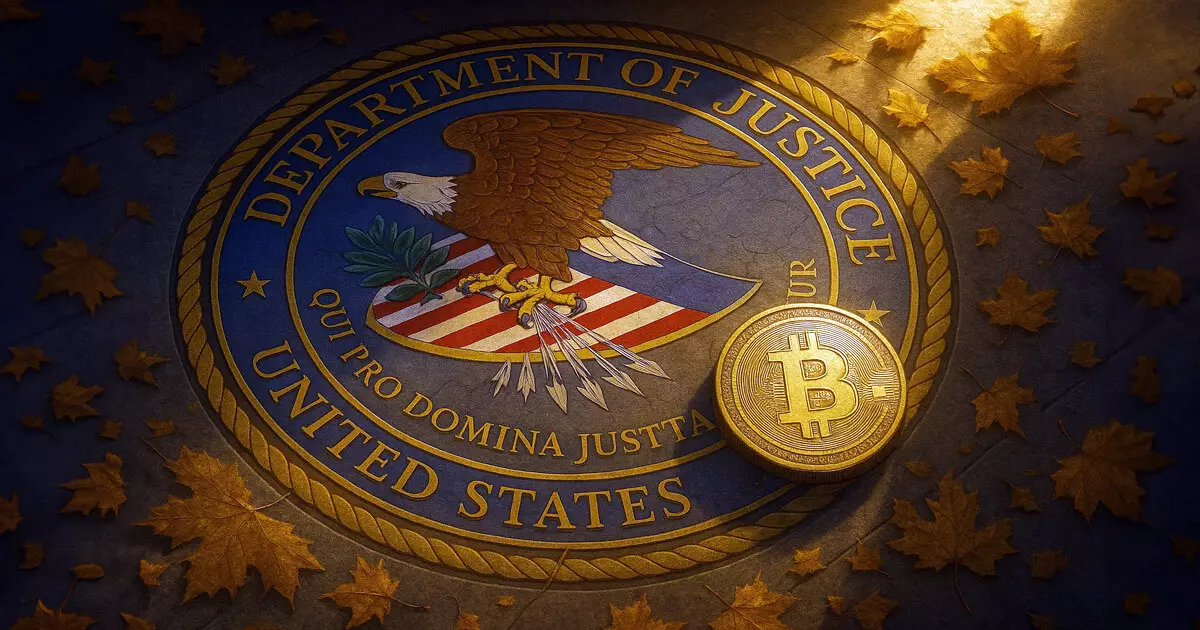In an era dominated by rapid technological advancements, it is astonishing that certain financial regulations remain stuck in outdated paradigms. The recent announcement by the U.S. Department of Justice (DOJ) regarding the compensation of victims impacted by digital asset fraud sheds light on a glaring deficiency in our economic system. Victims of high-profile collapses like FTX and Celsius find themselves at a disadvantage, mainly because they are compensated based on valuations that are woefully out of date. As the DOJ points out, many assets were lost not merely through market failure but also due to outright theft and fraud. The existing reimbursement method fails to account for the subsequent appreciation of these digital assets—a misstep that ultimately deprives victims of what could have been a significant recovery.
Imagine this: a creditor holding Bitcoin worth around $20,000 at the time of FTX’s bankruptcy filing in November 2022, only to witness its market valuation skyrocketing to upwards of $108,000 by January 2025. Yet, the creditors are receiving fiat payouts reflecting the original value, effectively ignoring the massive upside available in the market. It seems incongruous, even ludicrous, that regulations can eliminate the right to recover based on current asset valuation simply because a fraudster once seized those assets. Herein lies the crux of the issue: victims not only suffer financial losses but are also stripped of the potential gains from their rightful holdings.
The Absurdity of Regulatory Limitations
The DOJ’s acknowledgment of regulatory limitations is a critical breakthrough in the ongoing discourse surrounding digital assets. Unfortunately, admitting the problem is only the first step. The inherent flaws in the current system highlight a lack of foresight and adaptability in legislative and regulatory frameworks. Is it not a fundamental tenet of justice to restore individuals to their rightful economic states? The failure to revise these outdated regulations effectively allows a system to penalize risk-takers and innovators. After all, a significant part of investing in digital assets is the associated risk. This risk should not lead to a paradigm where investors are further victimized during recovery.
The DOJ’s initiative to reevaluate asset compensation must be met with urgency. Cryptocurrencies and digital assets are not just another anomaly in the financial landscape; they represent a significant shift toward decentralization, transparency, and revolutionary potential in financial technology. Therefore, to ensure that victims are equitably compensated, an overhaul of the bankruptcy code is essential. Reacting slowly to these changes does a disservice to all stakeholders, including law-abiding digital asset companies striving to innovate within the existing framework.
Advocacy for Legal Recognition and Change
“It’s urgent; it’s long overdue,” emphatically stated a prominent creditor advocate identified as “Mr. Purple.” His call for reform echoes a sentiment shared by many within the crypto community. Digital assets must receive legal acknowledgment commensurate with that afforded to traditional financial instruments. The suggestion to amend bankruptcy law to accommodate these unique assets is not merely an adjustment; it signifies a revolutionary shift in how we perceive finance itself.
This advocacy aligns well with the DOJ’s strategic pivot, evidenced by its decision to dissolve the National Cryptocurrency Enforcement Team (NCET). The agency has wisely refocused its efforts toward tackling clear criminal activities like scams and market manipulation rather than scrutinizing legitimate operations. This shift could lay the groundwork for a more robust regulatory framework that prioritizes consumer protection while also allowing innovation to flourish.
The Role of Government in Consumer Protection
The urgency for legislative change brings to light a broader question about the government’s role in consumer protection within the digital asset space. The various collapses in the cryptocurrency market have deeply shaken investor confidence. For a government agency to take the pledge in providing clarity and security through proper legislative frameworks symbolizes not only integrity but also a commitment to financial justice. The DOJ’s involvement in President Trump’s Working Group on Digital Asset Markets is a proactive step in this direction.
Indeed, with regulatory frameworks being written from scratch, the DOJ must prioritize the interests of consumers alongside those of industry players. The fine line between regulation and stifling innovation is delicate; however, it rests on the responsibility of the government to ensure that the legal framework does not become an impediment for those brave enough to engage in emerging technologies.
The recent endeavor by the DOJ amplifies the urgent call for change. The financial landscape of tomorrow is evolving, and it is incumbent upon our regulatory agencies to evolve alongside it, ensuring a fair and just recovery for victims of digital asset fraud. It’s time for those in power to notice and act, lest they perpetuate a system that does not serve the very people it is designed to protect.
















Leave a Reply